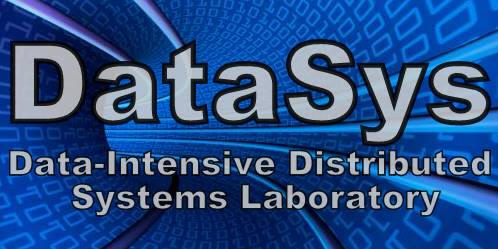CFP (TXT) | News | Topics | Dates | Submission | Organization | Keynote | Program
The Fourth International Workshop on Data Intensive Computing in the Clouds (DataCloud) 2013
Co-located with Supercomputing/SC 2013Denver Colorado -- November 17th, 2013
Keynote-1
What is So Special About Science Clouds and Why Does It Matter?
Dr. Robert Grossman
University of Chicago
Abstract:
Bio: Robert Grossman is the Chief Research Informatics Officer and a faculty member in the Biological Sciences Division at the University of Chicago. He is a Core Faculty and Senior Fellow at the Computation Institute and the Institute for Genomics and Systems Biology. He is also the Founder and a Partner of Open Data Group, which specializes in building predictive models over big data for companies, and is the Director of the not-for-profit Open Cloud Consortium, which provides cloud computing infrastructure to support researchers. He has led the development of open source software tools for analyzing big data, cloud computing and high performance networking. He is the Director of the Open Science Data Cloud, a petabyte-scale science cloud for managing, integrating, analyzing, and sharing datasets in science, medicine, health care and the environment. More information about him can be found at his web site rgrossman.com.
Keynote-2
Title: Getting Ready for Data Intensive Cloud Applications
Dr. Milind Bhandarkar
Pivotal Inc.
Abstract:
Bio: Milind Bhandarkar was the founding member of the team at Yahoo! that took Apache Hadoop from 20-node prototype to datacenter-scale production system, and has been contributing and working with Hadoop since version 0.1.0. He started the Yahoo! Grid solutions team focused on training, consulting, and supporting hundreds of new migrants to Hadoop. Parallel programming languages and paradigms has been his area of focus for over 20 years. He worked at the Center for Development of Advanced Computing (C-DAC), National Center for Supercomputing Applications (NCSA), Center for Simulation of Advanced Rockets, Siebel Systems, Pathscale Inc. (acquired by QLogic), Yahoo! and Linkedin. Up to 2013, Milind Bhandarkar was the Chief Scientist at Greenplum, a division of EMC. Currently, Milind Bhandarkar is the Chief Scientist at Pivotal, a new EMC joint venture with VMware that includes the Greenplum, Pivotal Labs, SpringSource,Cloud Foundry and Cetas business lines. Pivotal is about building big data infrastructure that can handle next-generation workloads. Milind Bhandarkar holds his Ph.D. degree in Computer Science from the University of Illinois at Urbana-Champaign.
 Data-Intensive Distributed Systems Laboratory
Data-Intensive Distributed Systems Laboratory